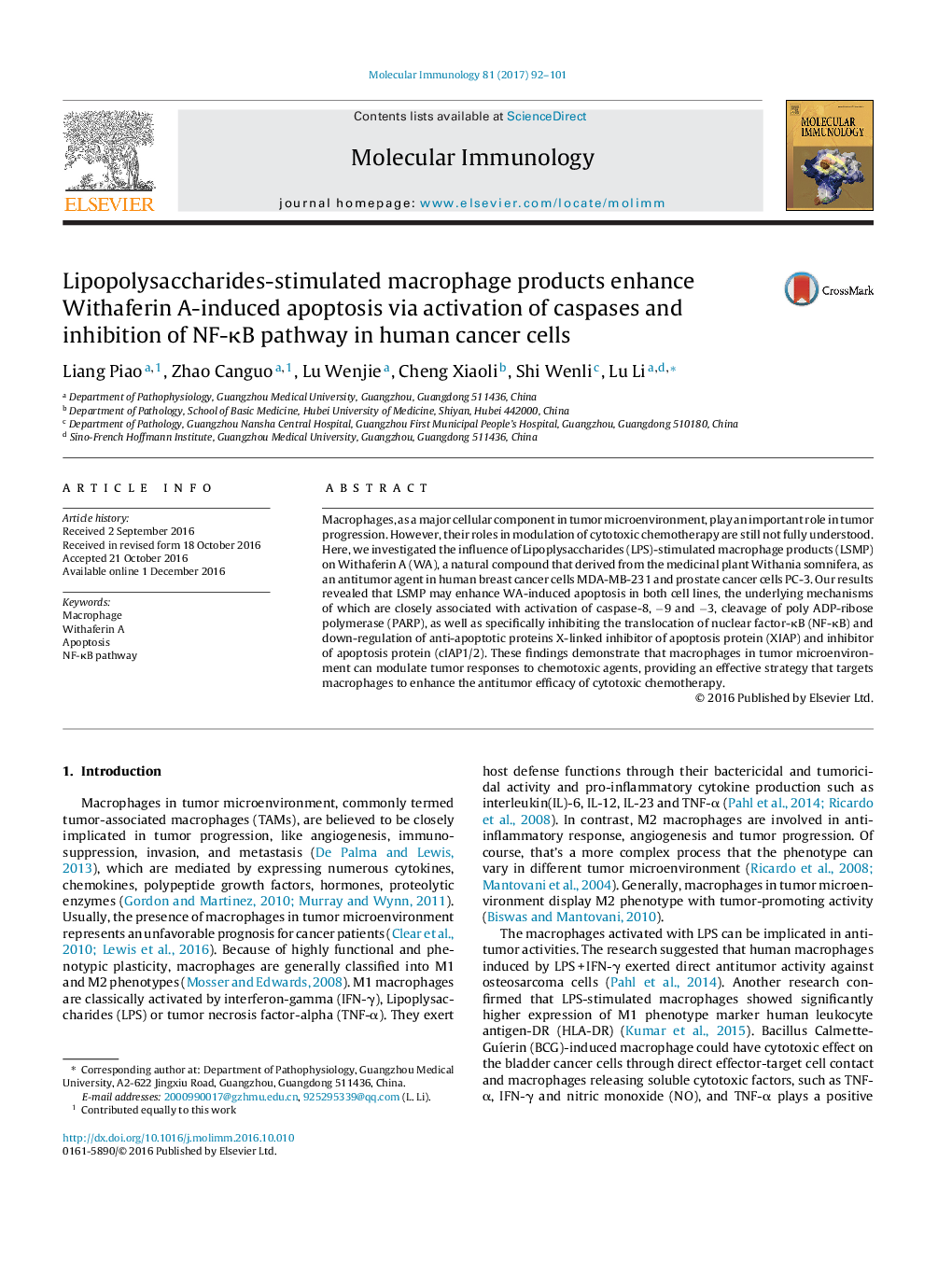| کد مقاله | کد نشریه | سال انتشار | مقاله انگلیسی | نسخه تمام متن |
|---|---|---|---|---|
| 5592077 | 1570712 | 2017 | 10 صفحه PDF | دانلود رایگان |

- LPS-stimulated macrophage products (LSMP) may enhance WA-induced apoptosis.
- WA plus LSMP co-treatment can decrease the expression of pro-caspases-8, pro-caspases-9, pro-caspase-3 and anti-apoptotic proteins (XIAP and cIAP) and increase the cleavage of PARP.
- WA plus LSMP co-treatment significantly decrease the nuclear NF-κB-p65 levels.
- Our findings will provide an effective strategy that targets macrophages to enhance the antitumor efficacy of cytotoxic chemotherapy.
Macrophages, as a major cellular component in tumor microenvironment, play an important role in tumor progression. However, their roles in modulation of cytotoxic chemotherapy are still not fully understood. Here, we investigated the influence of Lipoplysaccharides (LPS)-stimulated macrophage products (LSMP) on Withaferin A (WA), a natural compound that derived from the medicinal plant Withania somnifera, as an antitumor agent in human breast cancer cells MDA-MB-231 and prostate cancer cells PC-3. Our results revealed that LSMP may enhance WA-induced apoptosis in both cell lines, the underlying mechanisms of which are closely associated with activation of caspase-8, â9 and â3, cleavage of poly ADP-ribose polymerase (PARP), as well as specifically inhibiting the translocation of nuclear factor-κB (NF-κB) and down-regulation of anti-apoptotic proteins X-linked inhibitor of apoptosis protein (XIAP) and inhibitor of apoptosis protein (cIAP1/2). These findings demonstrate that macrophages in tumor microenvironment can modulate tumor responses to chemotoxic agents, providing an effective strategy that targets macrophages to enhance the antitumor efficacy of cytotoxic chemotherapy.
Journal: Molecular Immunology - Volume 81, January 2017, Pages 92-101